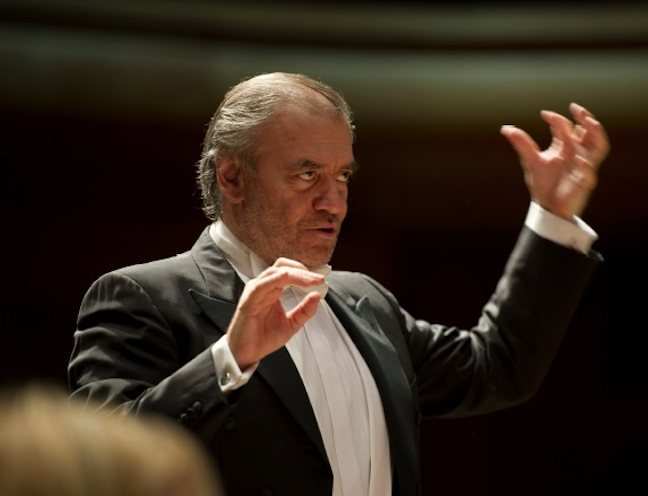
Try to imagine your favourite combination of power, softness and luxury — dark chocolate and whipped cream, iron fists in velvet gloves, a sports car lined in rich leather — and you can begin to imagine the experience of hearing the Stradivarius Ensemble of the Mariinsky Orchestra at Koerner Hall on Friday night.
- Classical Music 101: What Does A Conductor Do? - June 17, 2019
- Classical Music 101 | What Does Period Instrument Mean? - May 6, 2019
- CLASSICAL MUSIC 101 | What Does It Mean To Be In Tune? - April 23, 2019
Valery Gergiev, the world’s most in-demand conductor, had been invited to bring his elite players from St Petersburg to add musical sparkle to the Royal Conservatory of Music’s annual gala concert.
The guests delivered on their promise — and then some. The range and quality of sound produced by the 29 Russians was awe-inspiring.
Some of the credit could go to the Old Master instruments that each of these star players is given by the Mariinsky organization. But this is really the story of a group of people who play as a close-knit ensemble with a music director who has nurtured their artistic cohesion as members of a busy opera, ballet and concert orchestra over the course of more than 25 years.
They came bearing a programme that was heavy while also being leavened by its composer’s mastery over the art of building and releasing narrative tension.
The utter silence from the capacity audience during the full length of this intermissionless concert spoke volumes.
The program opened with the remarkable Metamorphosen, one of the valedictory works by German composer Richard Strauss. It expresses his sorrow at the devastation of his homeland in the closing year of World War II.
Strauss wrote separate parts for 23 instruments, alternating between a deep wash of notes and intimate interplay between a handful of players. Gergiev shaped the piece with uncommon grace, helping the ensemble deliver a sound as rich yet delicately balanced as one would hear from a fine choir.
It made me wish we had more opportunities to hear this composition in live concert.
The other two works on the program were Russian.
The first, the Chamber Symphony by Dmitri Shostakovich, is also a musical response born of personal dejection. The composer wrote it in 1960 as an adaptation of his String Quartet No. 8.
Although the programme-closing 1880 Serenade for Strings by Peter Ilytch Tchaikovsky is relative fluff in comparison to the other two pieces, the orchestra performed it with equal intensity, lending much of the music a deep, golden glow in the process.
This gala was about great art impeccably performed. The instruments on stage may have been collectively worth tens of missions of dollars, but the concert itself was priceless.
John Terauds
- Classical Music 101: What Does A Conductor Do? - June 17, 2019
- Classical Music 101 | What Does Period Instrument Mean? - May 6, 2019
- CLASSICAL MUSIC 101 | What Does It Mean To Be In Tune? - April 23, 2019



